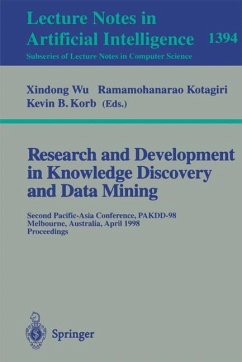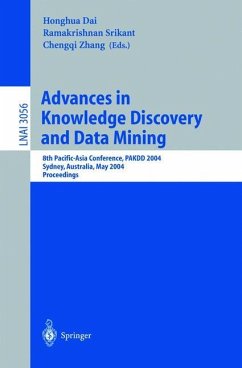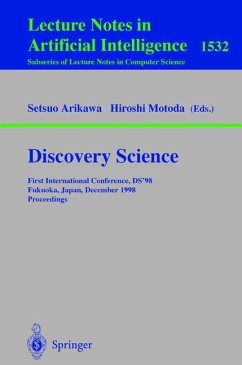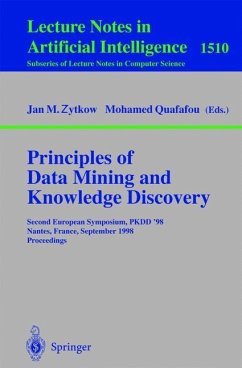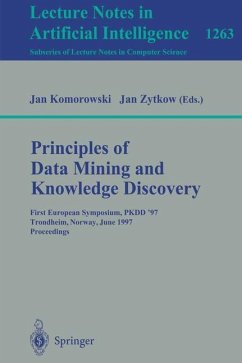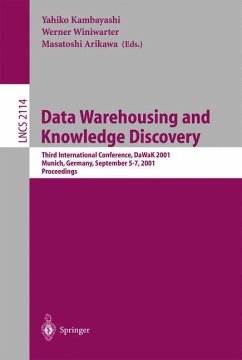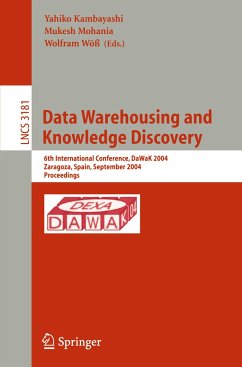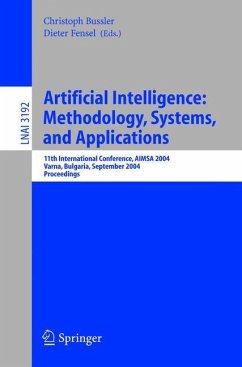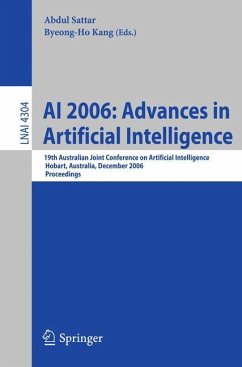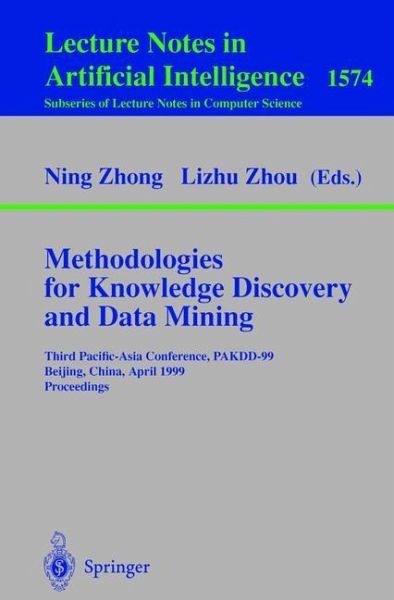
Methodologies for Knowledge Discovery and Data Mining
Third Pacific-Asia Conference, PAKDD'99, Beijing, China, April 26-28, 1999, Proceedings
Herausgegeben: Zhong, Ning; Zhou, Lizhu

PAYBACK Punkte
20 °P sammeln!
This volume contains the papers selected for presentation at the Third Paci?c- Asia Conference on Knowledge Discovery and Data Mining (PAKDD-99)held in the Xiangshan Hotel, Beijing, China, April 26-28, 1999. The conference was sp- sored by Tsinghua University, National Science Foundation of China, Chinese Computer Federation, Toshiba Corporation, and NEC Software Chugoku, Ltd. PAKDD-99 provided an international forum for the sharing of original research results and practical development experiences among researchers and application developers from di?erent KDD-related areas such as machine lea...
This volume contains the papers selected for presentation at the Third Paci?c- Asia Conference on Knowledge Discovery and Data Mining (PAKDD-99)held in the Xiangshan Hotel, Beijing, China, April 26-28, 1999. The conference was sp- sored by Tsinghua University, National Science Foundation of China, Chinese Computer Federation, Toshiba Corporation, and NEC Software Chugoku, Ltd. PAKDD-99 provided an international forum for the sharing of original research results and practical development experiences among researchers and application developers from di?erent KDD-related areas such as machine lea- ing, databases, statistics, knowledge acquisition, data visualization, knowled- based systems, soft computing, and high performance computing. It followed the success of PAKDD-97 held in Singapore in 1997 and PAKDD-98 held in A- tralia in 1998 by bringing together participants from universities, industry, and government. PAKDD-99 encouraged both new theory/methodologies and real world - plications, and covered broad and diverse topics in data mining and knowledge discovery. The technical sessions included: Association Rules Mining; Feature Selection and Generation; Mining in Semi, Un-structured Data; Interestingness, Surprisingness, and Exceptions; Rough Sets, Fuzzy Logic, and Neural Networks; Induction, Classi?cation, and Clustering; Causal Model and Graph-Based Me- ods; Visualization; Agent-Based, and Distributed Data Mining; Advanced Topics and New Methodologies. Of the 158 submissions, we accepted 29 regular papers and 37 short papers for presentation at the conference and for publication in this volume. In addition, over 20 papers were accepted for poster presentation.





